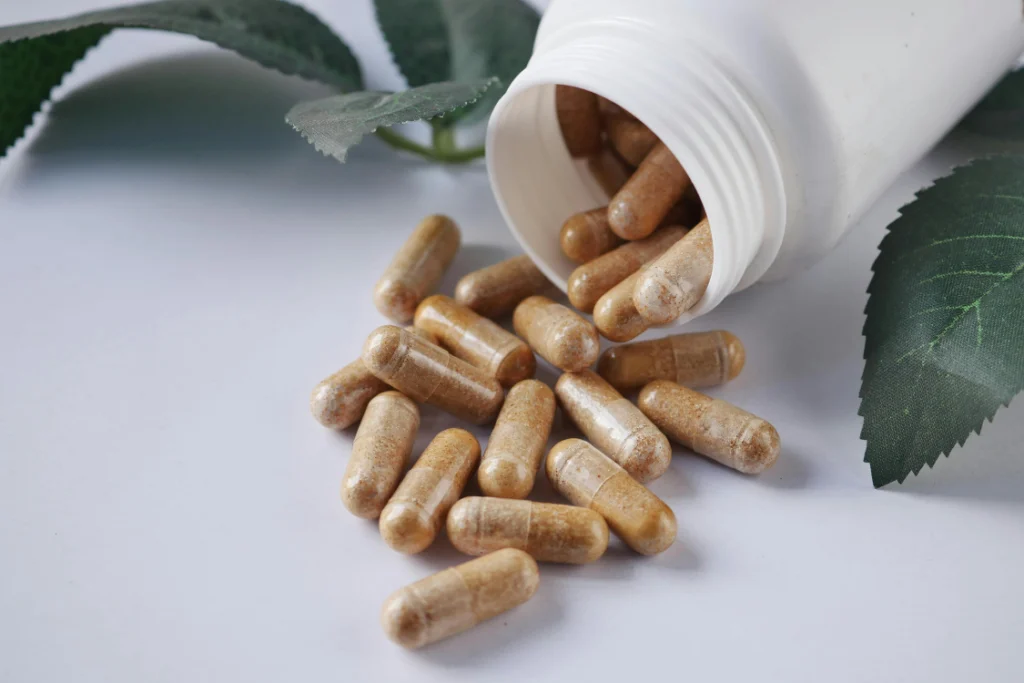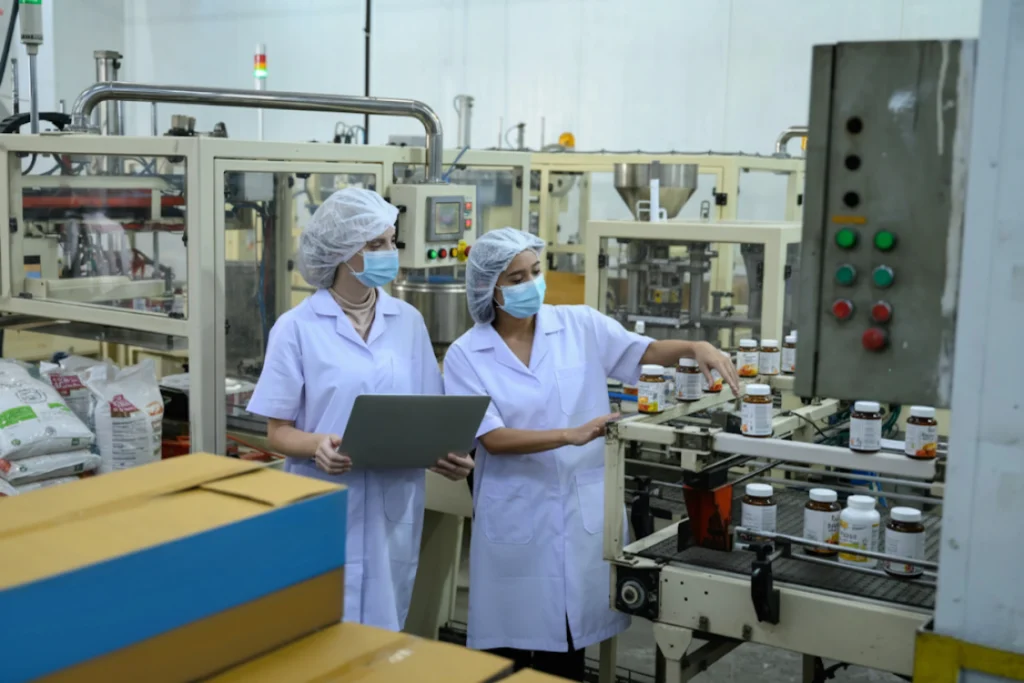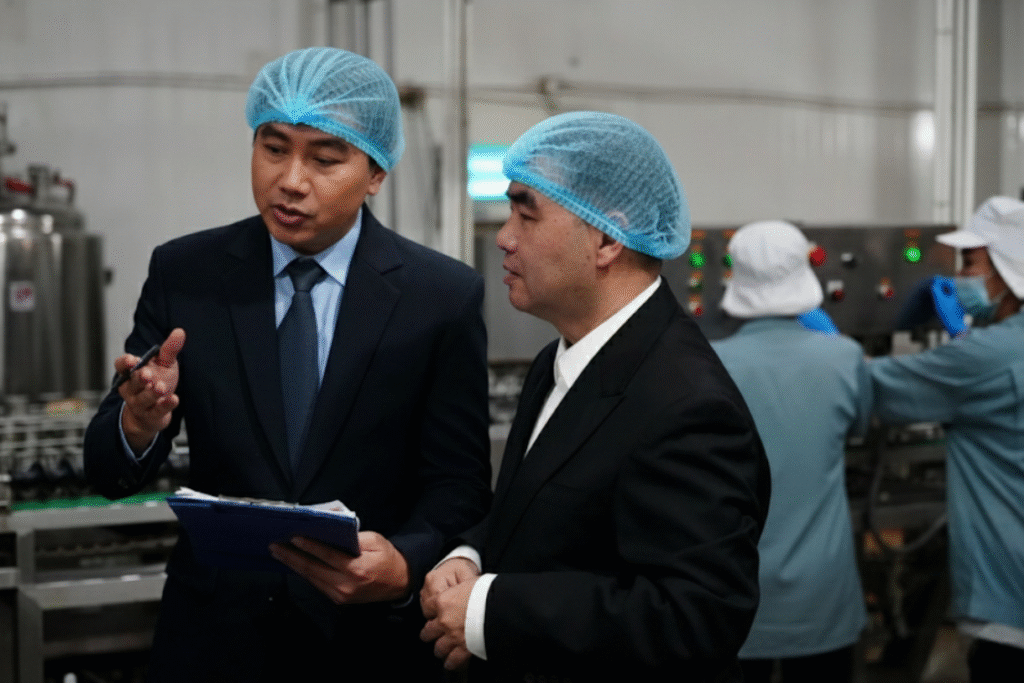Choosing the wrong supplement manufacturer can be catastrophic, potentially sinking your business before it even launches. Production delays, mislabeled dietary supplements, or a failure to meet regulatory requirements can quickly trigger costly recalls, legal action, and a permanent loss of customer confidence. That’s why rigorous supplement manufacturer due diligence isn’t merely an option; it’s the absolute safeguard protecting both your brand’s reputation and helping ensure the safety of your customers’ products.
By meticulously reviewing a potential partner’s history, financial stability, and established regulatory compliance, you can pinpoint liabilities before they escalate into costly problems. The due diligence steps outlined below will help you make fully informed choices, avoid unstable contract manufacturing partners, and establish the solid foundation necessary for long-term success in the competitive supplement industry.
Why Due Diligence Matters in Supplement Manufacturing
Due diligence when selecting a supplement manufacturer is a two-fold act: it protects your business, and it protects the people who rely on your finished products. Skipping this essential step leaves supplement brands dangerously exposed to compliance issues, recalls, and the kind of reputational damage that can take years to repair. A careful, systematic review is the only way to ensure regulatory compliance, maintain uncompromising product quality, and protect consumers in the rapidly evolving dietary supplement industry.
Protecting your brand’s reputation
Consumers purchase dietary supplements with the expectation that they are safe, accurately labeled, and produced under high-quality standards. When a contract manufacturer attempts to cut corners or fails to meet stringent regulatory requirements, it is your brand that ultimately suffers the public relations consequences. Conducting due diligence drastically reduces the chance of quality issues, mislabeled supplement facts panels, or safety concerns that can permanently erode customer loyalty and long-term trust.
Reducing financial and legal risks
A manufacturer’s financial stability is as crucial as its production capabilities. If a supplement manufacturer is facing repeated lawsuits, bankruptcies, or ongoing FDA evaluations, your investment is immediately placed at risk. Thorough research into batch records, inspection reports, and their history of reporting adverse events helps you proactively avoid devastating compliance issues and expensive product recalls. A careful review not only verifies compliance with regulatory standards but also actively protects brand owners from avoidable financial losses.

10 Due Diligence Steps to Take Before Partnering with a Supplement Manufacturer
Every step in the supplement manufacturer’s due diligence process is designed to shield your business from risk. From verifying compliance with current good manufacturing practices to evaluating their production capabilities, each detail confirms that the entire manufacturing process meets the elevated standards of the dietary supplement industry.
These checks are particularly critical for brand owners developing custom formulations, private label products, or finished products that must maintain strict adherence to regulatory standards.
Step 1: Check how long they’ve been in business
Experienced manufacturers who have been active in supplement manufacturing for at least five years typically have a stronger, more verifiable track record. Longevity confirms their fundamental ability to maintain rigorous quality standards, comply with evolving regulatory requirements, and successfully adapt to industry regulations over time.
Step 2: Review ownership structure
Understanding who owns the company provides insight into their core decision-making and accountability structure. Family-owned businesses often prioritize long-term stability and relationships, whereas corporate-backed supplement manufacturers may offer broader production capabilities and a more complex supply chain management system. Due diligence requires complete ownership transparency.
Step 3: Research financial stability
A manufacturer’s financial health directly determines their ability to support your brand’s growth sustainably. Tools like public court records or financial databases can reveal lawsuits, bankruptcies, and other serious red flags. Verifying financial stability is essential because it helps ensure that regulatory compliance is not jeopardized by a need to cut corners in raw material sourcing or quality control.
Step 4: Verify FDA inspection history
FDA regulations and FDA guidelines are the definitive foundation for protecting consumers within the dietary supplement industry. Search the FDA’s inspection database for any history of citations, classifications, or unresolved compliance issues. Consistent records of clean inspections demonstrate an unwavering commitment to regulatory standards.
Step 5: Confirm GMP certification
Current Good Manufacturing Practices (GMP) are the non-negotiable foundation of quality and safety control systems for dietary supplements. Confirming GMP compliance ensures that the manufacturer meets the requirements for product quality, the accuracy of the supplement facts panel, and safety standards throughout the entire manufacturing process.
Step 6: Check other certifications (NSF, ISO, Organic, etc.)
Additional third-party certifications demonstrate a manufacturer’s deep dedication to high-quality standards and proactive regulatory compliance. Certifications from the National Sanitation Foundation (NSF) or the International Organization for Standardization (ISO) confirm that practices in ingredient sourcing, stability testing data, and quality control labs have been independently verified. Always verify compliance actively through official databases.
Step 7: Ask for audit results and compliance documents
A reliable contract manufacturing partner must be willing to share testing data, comprehensive audit results, and all relevant compliance records. Regular third-party audits are the most substantial evidence that dietary ingredients and finished products meet FDA guidelines, industry regulations, and strict safety standards.
Step 8: Research recall and legal history
A history of product recalls, serious legal disputes, or reported serious adverse events may point to underlying, ongoing compliance issues. Search FDA recall databases, news archives, and federal food safety notices to evaluate how the manufacturer handled problems and whether product success was sustained after taking corrective action.
Step 9: Ask for client references
Client references provide invaluable, real-world insight into customer satisfaction, reliability, and the true quality of a product. Long-term relationships with other established supplement brands confirm the manufacturer’s ability to build customer loyalty, consistently maintain regulatory compliance, and deliver high-quality standards.
Step 10: Visit the facility (in person or virtually)
A facility tour provides a direct, firsthand view of the manufacturing process, technical capabilities, and the integrity of their quality control systems. Observing the handling of batch records, the operational state of the quality control labs, and the commitment to safety protocols helps confirm that products are accurately labeled and that procedures are up to date with regulatory requirements.

Red Flags to Watch for During Due Diligence
Even experienced manufacturers can present warning signs that must not be overlooked. Paying close attention to these details helps protect consumers, maintain regulatory compliance, and ensure quality across both dietary supplements and private label products.
Evasive answers about ownership or compliance
Transparency is essential in a supplement manufacturer’s due diligence. If a manufacturer is vague or actively avoids answering direct questions about ownership, regular third-party audits, or adherence to FDA regulations, it immediately raises serious concerns about their regulatory compliance and ultimate accountability.
Outdated or missing certifications
A lapse in GMP compliance or the absence of a required certification, such as NSF, signals weak quality control and a significantly increased risk of compliance issues. Always ensure that all certifications are current, adhere to good manufacturing practices, and are properly documented and recently verified by third-party audits.
Frequent rebranding or ownership changes
Repeated shifts in ownership, significant rebranding efforts, or rapid changes in senior management often signal underlying instability, unresolved legal battles, or attempts to evade accountability. Such changes can seriously threaten the long-term success of your product, customer loyalty, and the stability of your brand’s identity.
How Due Diligence Builds Stronger Partnerships
Strong, productive partnerships in the dietary supplement industry are forged from verified trust and shared commitment to quality standards. When brand owners conduct thorough research and verify compliance, they are laying the solid groundwork for long-term success with their contract manufacturing partner.
Creating mutual trust from the start
Establishing clear expectations and verifying robust regulatory compliance signals to the supplement manufacturer that professionalism and adherence to the regulatory framework are your non-negotiable priorities. This immediate, mutual trust makes it significantly easier to manage complex aspects, such as custom formulations, ingredient sourcing, and the day-to-day oversight of the entire manufacturing process.
Setting the foundation for long-term growth
Reliable supplement manufacturers with a solid track record enable supplement brands to scale their operations with confidence. Verified compliance, the consistent application of high-quality standards, and stable supply chain management dramatically reduce the risk of future quality issues, effectively protect consumers, and ensure that your brand’s growth aligns with evolving industry regulations.

Do Your Homework Before You Commit
Due diligence for supplement manufacturers is an essential process for protecting your brand’s reputation, meeting strict regulatory requirements, and ensuring long-term product quality throughout the entire manufacturing process. Reviewing ownership, confirming GMP compliance, checking FDA regulations, and demanding third-party audits all work together to help you avoid expensive compliance issues and unstable contract manufacturing partners.
When supplement brands dedicate the necessary time to verify compliance, assess production capabilities, and consistently demand high-quality standards, they are positioning themselves for lasting success in the dietary supplement industry. Careful due diligence conducted today is the most straightforward, most reliable path to safe products, unshakable customer loyalty, and stable long-term growth tomorrow.
Frequently Asked Questions
What does due diligence mean in supplement manufacturing?
It is a comprehensive process that thoroughly verifies a supplement manufacturer’s history, financial stability, and established regulatory compliance before entering into a partnership.
Why is due diligence important when choosing a manufacturer?
It is critical because it helps protect supplement brands from costly recalls, serious compliance issues, and unreliable contract manufacturing partners.
How do I check a supplement manufacturer’s compliance history?
You should search FDA inspection and recall databases, review results from third-party audits, and formally request up-to-date compliance documents and batch records.
Can I ask a supplement manufacturer for client references?
Yes, reputable and experienced manufacturers should be fully prepared to provide client references to demonstrate their positive track record and verifiable product quality.
What is the biggest red flag in supplement manufacturer due diligence?
Evasive or vague answers about ownership, lapsed GMP compliance certifications, or a pattern of repeated ownership changes all signal serious stability and regulatory compliance risks.
References
- Food and Drug Administration (FDA). (2024, April 24). Current good manufacturing practices (CGMPs) for food and dietary supplements. U.S. Food and Drug Administration. https://www.fda.gov/food/guidance-regulation-food-and-dietary-supplements/current-good-manufacturing-practices-cgmps-food-and-dietary-supplements
- Food and Drug Administration Philippines (FDA). (2025). FDA Circular No. 2025-0001: Guidelines on the classification of vitamins and minerals for food/dietary supplements for adults under processed food product, repealing the level set for food in the Office Order No. 22 s. 1991 entitled “Guidelines for the classification of vitamins and minerals as drug or as food”. https://www.fda.gov.ph/fda-circular-no-2025-0001-guidelines-on-the-classification-of-vitamins-and-minerals-for-food-dietary-supplements-for-adults-under-processed-food-product-repealing-the-level-set-for-food-in-the-off/



